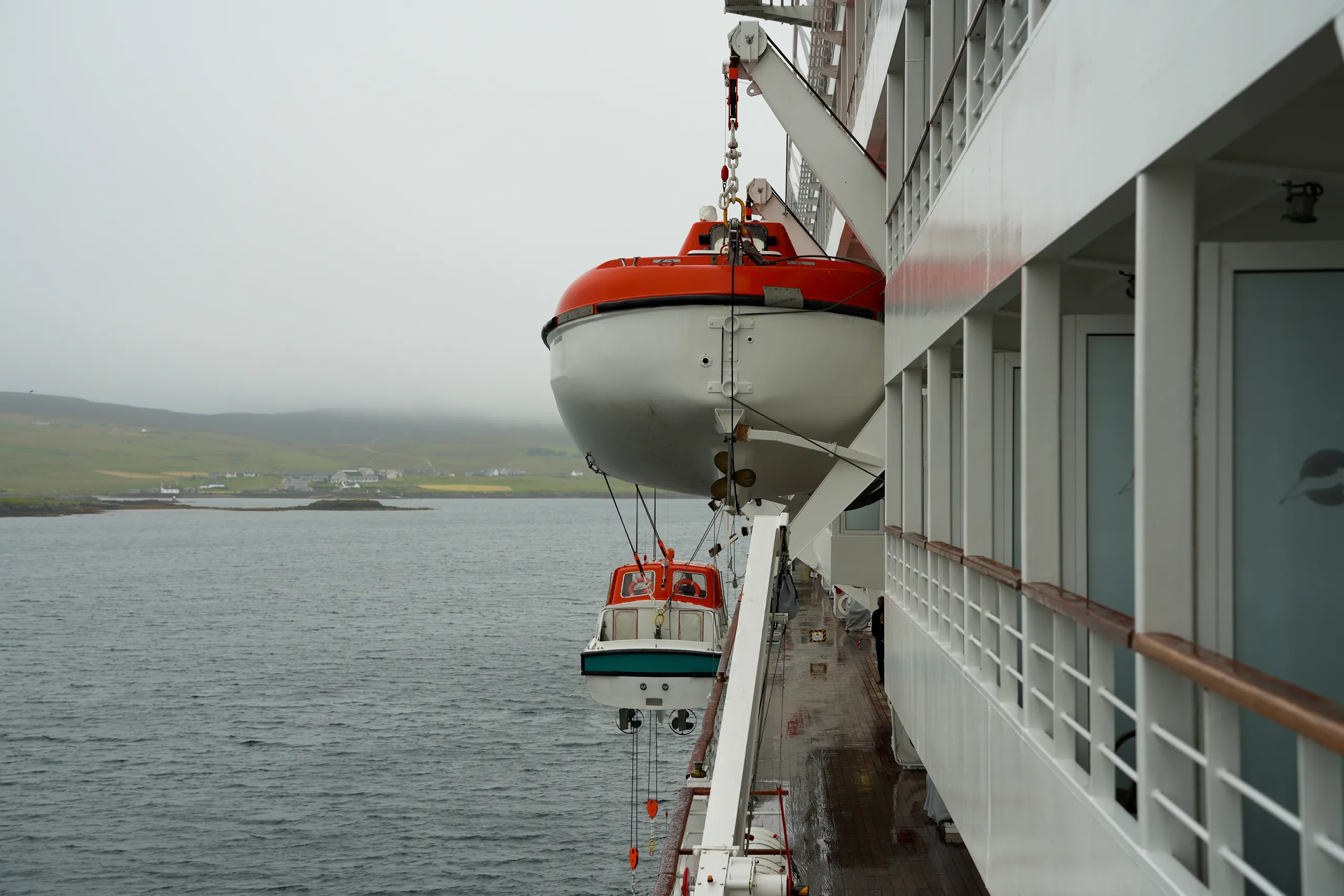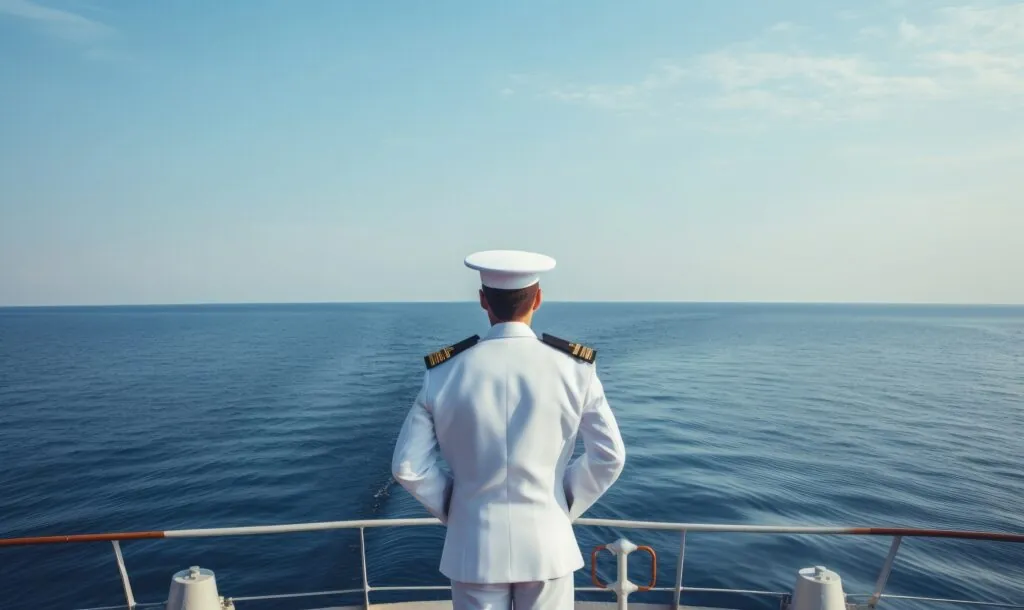Legal Steps if Injured During a Tender Transfer to Shore
Cruise vacations are meant to be relaxing and enjoyable. But for many travelers, the process of transferring from a cruise ship to shore via a small tender boat introduces a risk they never anticipated. These small boats, often used when ships cannot dock directly at port, can become the scene of serious accidents. If you’ve been injured during a cruise tender transfer, you’re not alone—and more importantly, you may have legal rights under maritime law.

This guide explains what a tender boat transfer involves, how injuries can occur, who may be responsible, and the exact legal steps to take if you’ve been hurt during one of these transfers.
What Is a Cruise Tender Transfer?
A cruise tender transfer occurs when the cruise ship anchors offshore rather than docking directly at a pier. This commonly happens at destinations where the port is too small or shallow to accommodate a large vessel. Passengers are then transported to and from shore using smaller boats called “tenders.”
These tenders are typically operated by the cruise line itself or by third-party port service providers. They are designed to carry dozens of passengers in relatively short trips. While this system works efficiently in many cases, it also introduces unique safety challenges. Passengers often board from a floating or swaying platform, stepping between the main ship and a smaller vessel—sometimes in rough weather or choppy seas.
Although tender transfers are routine on many itineraries, they carry risks that the cruise line has a legal obligation to manage responsibly. Unfortunately, not all cruise operators take the necessary steps to prevent accidents.
Common Causes of Tender Transfer Injuries
Tender transfer accidents may seem like isolated incidents, but they occur more often than many realize. Some of the most common causes include:
1. Slips and Falls
One of the most frequently reported injuries involves passengers slipping while stepping onto or off of the tender boat. Decks may be wet, the gangway may move suddenly due to waves, or the tender may shift position unexpectedly. Without stable footing or adequate railings, passengers can easily fall, suffering broken bones, head injuries, or sprains.
2. Inadequate Crew Assistance
Cruise lines are supposed to provide assistance during boarding and disembarking, particularly for elderly or disabled passengers. However, many injury reports describe a lack of support from the crew—either they weren’t present, weren’t paying attention, or simply failed to assist properly. This can significantly increase the risk of accidents during boarding or exit.
3. Rough Seas or Poor Weather
Even if the crew is attentive, weather conditions can create hazards. Swells or high winds can cause the tender to rock unpredictably, making the step between ship and boat unstable. Passengers often underestimate how dangerous the conditions can be.
4. Faulty or Unsafe Equipment
In some cases, injuries result from issues with the equipment used during the transfer. Broken handrails, loose steps, or improperly secured gangways can turn a simple process into a dangerous one.
Each of these causes may indicate negligence on the part of the cruise line or tender operator, especially if proper procedures and safeguards were not in place.
Who Is Liable for a Tender Boat Injury?
Determining legal liability for a tender boat accident can be complex. Several parties may share responsibility depending on how the transfer was conducted and where the failure occurred.
Cruise Line Liability and Duty of Care
Cruise lines have a legal duty to protect their passengers from foreseeable harm. This includes ensuring that the tendering process is conducted safely and that all equipment is properly maintained. They are also responsible for training their crew to assist passengers during boarding and disembarking. If the cruise line failed to meet these duties, they may be held liable for injuries.
Third-Party Tender Operators
In some locations, the cruise line contracts with local boat operators to manage transfers. If the accident occurred due to the operator’s negligence—such as poor vessel maintenance or lack of crew training—then the third-party provider might share in the liability. Depending on the terms of the cruise contract, the cruise line could still be partially responsible.
Passenger Responsibility and Comparative Fault
Passengers also have a duty to exercise reasonable care for their own safety. If someone was running, intoxicated, or ignored clear safety instructions, the court might find the passenger partially at fault. However, comparative negligence doesn’t necessarily bar a claim—it may just reduce the amount of compensation awarded.
Legal Steps to Take After a Tender Boat Injury
If you’ve been injured during a tender transfer, taking the right steps immediately afterward can make a major difference in your ability to pursue a successful claim.
- Seek Medical Attention
Your first priority should be your health. Even if the injury seems minor, get checked by the ship’s medical team. This creates a formal medical record of the injury and ensures you receive timely treatment. - Report the Incident
Notify the cruise line’s guest services or security department and request that an incident report be filed. Be sure to ask for a copy of this report for your own records—it can be a critical piece of evidence later. - Document the Scene and Gather Evidence
Take photos of the location where the injury occurred, your injuries, any wet or unsafe surfaces, and the weather or sea conditions. If there were any witnesses, try to get their names and contact information. - Keep Detailed Records
Hold onto medical bills, travel receipts, and communication with the cruise company. These documents help build a comprehensive picture of your experience and damages. - Speak to a Maritime Injury Attorney
Cruise ship injuries fall under maritime law, which has its own rules and time limits. An experienced attorney can help you determine liability, calculate damages, and file a claim within the required legal timeframe.
How Maritime Law Affects Your Injury Claim
Injury claims that occur at sea are governed by maritime law, a specialized legal field that differs significantly from land-based personal injury law.
One of the most important differences is the short statute of limitations. Most cruise contracts stipulate that a lawsuit must be filed within one year of the incident. Additionally, many contracts contain forum selection clauses, meaning that you must file your claim in a specific court, often located far from your home.
Maritime law also requires a different standard of evidence and often allows cruise lines to invoke defenses unavailable in typical personal injury cases. That’s why it’s so important to retain an attorney familiar with this area of law.
What Compensation Can You Receive?
If your injury was caused by negligence, you may be entitled to various forms of compensation, including:
- Medical Expenses: Reimbursement for hospital visits, doctor consultations, physical therapy, and ongoing treatment.
- Lost Income: If your injuries caused you to miss work or diminished your future earning capacity.
- Pain and Suffering: Compensation for physical pain and emotional distress caused by the accident.
- Loss of Enjoyment: If the injury interfered with your ability to enjoy your vacation or other activities.
- Permanent Disability or Disfigurement: If the accident caused long-term or life-altering harm.
Each case is different, and the value of your claim will depend on the specific details of your injury and how it impacted your life.
Common Legal Challenges Passengers Face
Many passengers encounter roadblocks when trying to pursue injury claims after a tender boat accident. These include:
- Cruise lines denying responsibility or blaming the passenger
- Difficulty obtaining copies of incident reports
- Insufficient evidence to prove negligence
- Being unaware of legal deadlines or proper jurisdiction
- Accepting onboard settlements or waivers under pressure
To avoid these pitfalls, it is crucial to act quickly, gather all available documentation, and seek professional legal counsel.
How to Choose the Right Cruise Injury Lawyer
Maritime personal injury cases are not the same as standard slip-and-fall claims. The lawyer you choose should have experience specifically in cruise-related or maritime injury law. Look for someone who:
- Has successfully handled cruise injury cases before
- Understands maritime statutes and cruise contract clauses
- Offers a free consultation and contingency-based fees
- Can guide you through complex venue or jurisdiction issues
A knowledgeable attorney can help you get the maximum compensation possible, while ensuring your claim is filed correctly and on time.
Frequently Asked Questions
What should I do immediately after being injured during a tender boat transfer?
The first and most important step is to seek medical attention, even if the injury appears minor. Prompt treatment not only protects your health but also helps document the incident. You should also report the accident to ship personnel and ask for an official incident report. If possible, take photos of the scene, gather witness names, and keep copies of any documents related to the event.
Can I file a legal claim if the injury happened during a shore excursion operated by someone other than the cruise line?
Yes, you may still have a valid claim. Even when a third-party operator handles the tender or shore excursion, the cruise line may share liability—especially if they promoted, coordinated, or failed to oversee the safety of that transfer. Maritime law recognizes that cruise lines often retain responsibility for passenger safety, regardless of subcontractor involvement.
What if the cruise line claims I was at fault for the injury?
It’s common for cruise lines to argue that the passenger was responsible, especially if the passenger slipped or didn’t follow instructions. However, under maritime law, a claim can still be pursued even if you were partially at fault. This is known as comparative negligence. A court may reduce your compensation, but it doesn’t necessarily eliminate your right to recover damages.
How long do I have to file a lawsuit after a tender boat injury?
Most cruise lines impose a strict one-year time limit to file a lawsuit, and many require that claims be filed in a specific court, often located in Florida or another designated jurisdiction. These deadlines are usually outlined in the fine print of your cruise ticket. Missing this deadline could permanently bar your ability to pursue compensation, so it’s critical to act quickly.
Do I really need a maritime injury lawyer, or can I handle the claim myself?
You are not legally required to have an attorney, but handling a maritime injury claim on your own is extremely difficult. Maritime law is highly specialized, and cruise contracts often contain legal clauses that can limit your rights if you don’t act appropriately. A lawyer with experience in cruise ship injury cases can guide you through the process, deal with the cruise line’s legal team, and help you secure fair compensation.
Contact The Cruise Injury Law Firm Today
If you’ve been injured while transferring from a cruise ship to shore via a tender boat, time is not on your side. Maritime law imposes strict deadlines for filing claims, and cruise lines are well-versed in defending themselves from lawsuits.
Don’t delay. Contact The Cruise Injury Law Firm today to understand your legal rights and explore your options for compensation. You don’t have to navigate this process alone—help is available.






